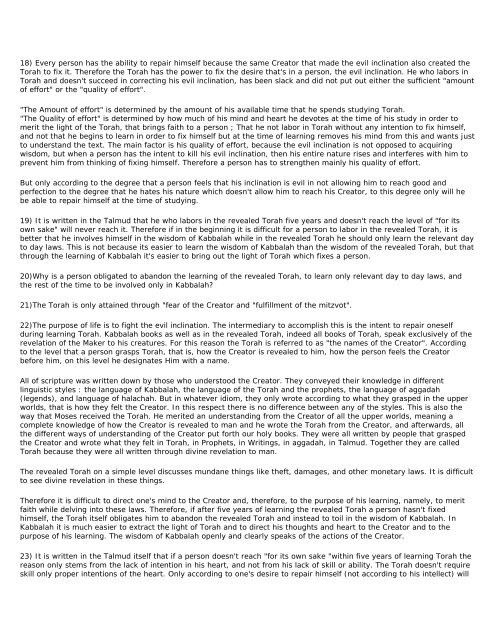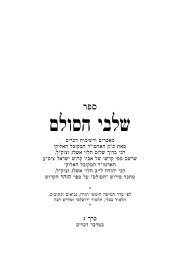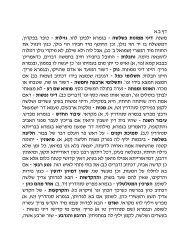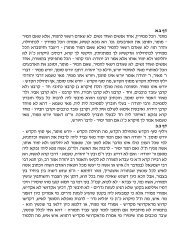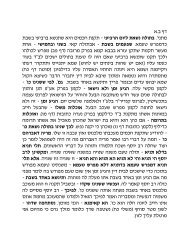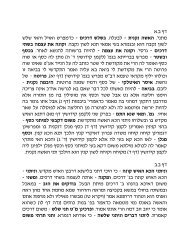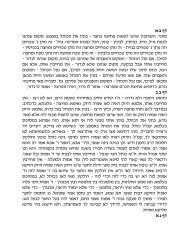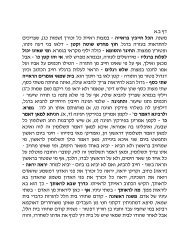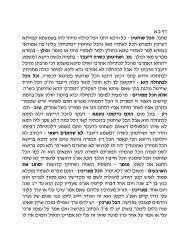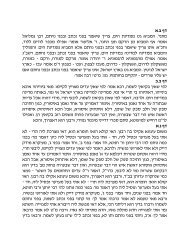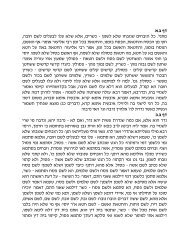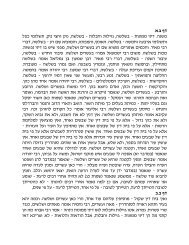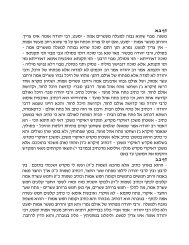Kabbalah World Center - "Breaking the Iron Wall"
Kabbalah World Center - "Breaking the Iron Wall"
Kabbalah World Center - "Breaking the Iron Wall"
You also want an ePaper? Increase the reach of your titles
YUMPU automatically turns print PDFs into web optimized ePapers that Google loves.
18) Every person has <strong>the</strong> ability to repair himself because <strong>the</strong> same Creator that made <strong>the</strong> evil inclination also created <strong>the</strong><br />
Torah to fix it. Therefore <strong>the</strong> Torah has <strong>the</strong> power to fix <strong>the</strong> desire that's in a person, <strong>the</strong> evil inclination. He who labors in<br />
Torah and doesn't succeed in correcting his evil inclination, has been slack and did not put out ei<strong>the</strong>r <strong>the</strong> sufficient "amount<br />
of effort" or <strong>the</strong> "quality of effort".<br />
"The Amount of effort" is determined by <strong>the</strong> amount of his available time that he spends studying Torah.<br />
"The Quality of effort" is determined by how much of his mind and heart he devotes at <strong>the</strong> time of his study in order to<br />
merit <strong>the</strong> light of <strong>the</strong> Torah, that brings faith to a person ; That he not labor in Torah without any intention to fix himself,<br />
and not that he begins to learn in order to fix himself but at <strong>the</strong> time of learning removes his mind from this and wants just<br />
to understand <strong>the</strong> text. The main factor is his quality of effort, because <strong>the</strong> evil inclination is not opposed to acquiring<br />
wisdom, but when a person has <strong>the</strong> intent to kill his evil inclination, <strong>the</strong>n his entire nature rises and interferes with him to<br />
prevent him from thinking of fixing himself. Therefore a person has to streng<strong>the</strong>n mainly his quality of effort.<br />
But only according to <strong>the</strong> degree that a person feels that his inclination is evil in not allowing him to reach good and<br />
perfection to <strong>the</strong> degree that he hates his nature which doesn't allow him to reach his Creator, to this degree only will he<br />
be able to repair himself at <strong>the</strong> time of studying.<br />
19) It is written in <strong>the</strong> Talmud that he who labors in <strong>the</strong> revealed Torah five years and doesn't reach <strong>the</strong> level of "for its<br />
own sake" will never reach it. Therefore if in <strong>the</strong> beginning it is difficult for a person to labor in <strong>the</strong> revealed Torah, it is<br />
better that he involves himself in <strong>the</strong> wisdom of <strong>Kabbalah</strong> while in <strong>the</strong> revealed Torah he should only learn <strong>the</strong> relevant day<br />
to day laws. This is not because its easier to learn <strong>the</strong> wisdom of <strong>Kabbalah</strong> than <strong>the</strong> wisdom of <strong>the</strong> revealed Torah, but that<br />
through <strong>the</strong> learning of <strong>Kabbalah</strong> it's easier to bring out <strong>the</strong> light of Torah which fixes a person.<br />
20)Why is a person obligated to abandon <strong>the</strong> learning of <strong>the</strong> revealed Torah, to learn only relevant day to day laws, and<br />
<strong>the</strong> rest of <strong>the</strong> time to be involved only in <strong>Kabbalah</strong>?<br />
21)The Torah is only attained through "fear of <strong>the</strong> Creator and "fulfillment of <strong>the</strong> mitzvot".<br />
22)The purpose of life is to fight <strong>the</strong> evil inclination. The intermediary to accomplish this is <strong>the</strong> intent to repair oneself<br />
during learning Torah. <strong>Kabbalah</strong> books as well as in <strong>the</strong> revealed Torah, indeed all books of Torah, speak exclusively of <strong>the</strong><br />
revelation of <strong>the</strong> Maker to his creatures. For this reason <strong>the</strong> Torah is referred to as "<strong>the</strong> names of <strong>the</strong> Creator". According<br />
to <strong>the</strong> level that a person grasps Torah, that is, how <strong>the</strong> Creator is revealed to him, how <strong>the</strong> person feels <strong>the</strong> Creator<br />
before him, on this level he designates Him with a name.<br />
All of scripture was written down by those who understood <strong>the</strong> Creator. They conveyed <strong>the</strong>ir knowledge in different<br />
linguistic styles : <strong>the</strong> language of <strong>Kabbalah</strong>, <strong>the</strong> language of <strong>the</strong> Torah and <strong>the</strong> prophets, <strong>the</strong> language of aggadah<br />
(legends), and language of halachah. But in whatever idiom, <strong>the</strong>y only wrote according to what <strong>the</strong>y grasped in <strong>the</strong> upper<br />
worlds, that is how <strong>the</strong>y felt <strong>the</strong> Creator. In this respect <strong>the</strong>re is no difference between any of <strong>the</strong> styles. This is also <strong>the</strong><br />
way that Moses received <strong>the</strong> Torah. He merited an understanding from <strong>the</strong> Creator of all <strong>the</strong> upper worlds, meaning a<br />
complete knowledge of how <strong>the</strong> Creator is revealed to man and he wrote <strong>the</strong> Torah from <strong>the</strong> Creator, and afterwards, all<br />
<strong>the</strong> different ways of understanding of <strong>the</strong> Creator put forth our holy books. They were all written by people that grasped<br />
<strong>the</strong> Creator and wrote what <strong>the</strong>y felt in Torah, in Prophets, in Writings, in aggadah, in Talmud. Toge<strong>the</strong>r <strong>the</strong>y are called<br />
Torah because <strong>the</strong>y were all written through divine revelation to man.<br />
The revealed Torah on a simple level discusses mundane things like <strong>the</strong>ft, damages, and o<strong>the</strong>r monetary laws. It is difficult<br />
to see divine revelation in <strong>the</strong>se things.<br />
Therefore it is difficult to direct one's mind to <strong>the</strong> Creator and, <strong>the</strong>refore, to <strong>the</strong> purpose of his learning, namely, to merit<br />
faith while delving into <strong>the</strong>se laws. Therefore, if after five years of learning <strong>the</strong> revealed Torah a person hasn't fixed<br />
himself, <strong>the</strong> Torah itself obligates him to abandon <strong>the</strong> revealed Torah and instead to toil in <strong>the</strong> wisdom of <strong>Kabbalah</strong>. In<br />
<strong>Kabbalah</strong> it is much easier to extract <strong>the</strong> light of Torah and to direct his thoughts and heart to <strong>the</strong> Creator and to <strong>the</strong><br />
purpose of his learning. The wisdom of <strong>Kabbalah</strong> openly and clearly speaks of <strong>the</strong> actions of <strong>the</strong> Creator.<br />
23) It is written in <strong>the</strong> Talmud itself that if a person doesn't reach "for its own sake "within five years of learning Torah <strong>the</strong><br />
reason only stems from <strong>the</strong> lack of intention in his heart, and not from his lack of skill or ability. The Torah doesn't require<br />
skill only proper intentions of <strong>the</strong> heart. Only according to one's desire to repair himself (not according to his intellect) will


